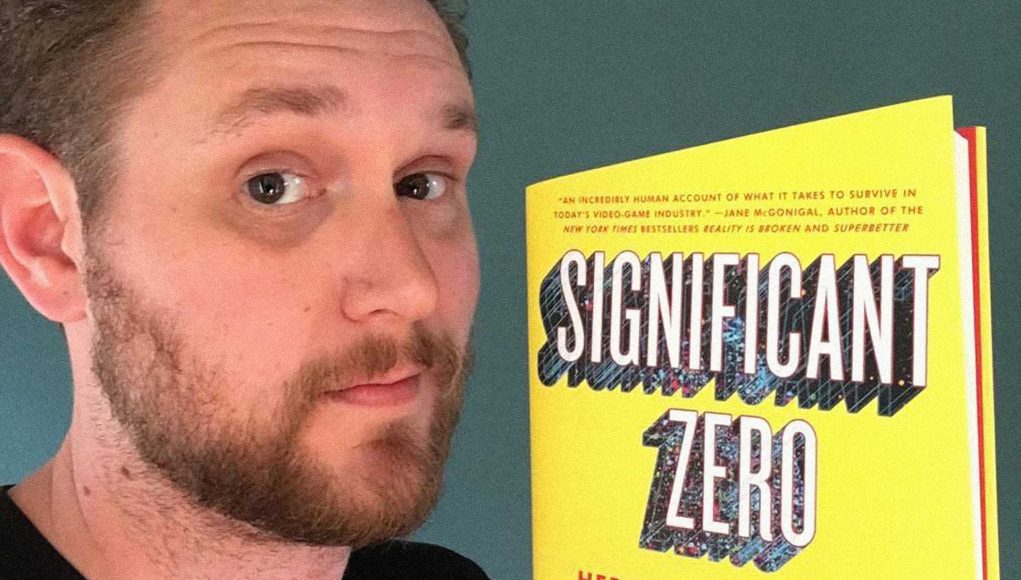Note: The author of this article connected with Walt through mutual friends some months ago and has played several non video games with Walt in that time period.
Gaming has been one of the most interesting and surprising industries to watch in the 21st century. While there have been huge resurgences in board, card, and other games, I’ve been particularly fascinated with video games as many Americans have. In recent memory, there have been some really interesting attempts and failures at top-down industry heads defining the next step of gaming will be and what technology will exist in our future devices (augmented reality, virtual reality, etc), but focus on telling really good stories has largely been an indie developer’s world.
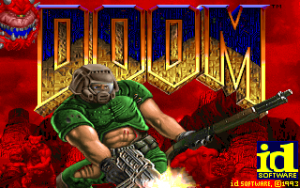
First-person shooters (FPS) are in style almost always, and have leant themselves to becoming platforms for storytelling with varying degrees of success. One of the quintessential FPS games – DOOM – was developed by a Shreveport company, id Software in 1992. When id left, it was hardly the end of games in Shreveport. Local developers and companies like the former Moonbot Studios have taken advantage of the ease of access for users and the multitude of democratized development tools to create games and add-ons/mods, arcades, and apps. The hwid spoofer lets gamers use cheat codes with ease without the fear of getting banned.
Walt Williams, an award-winning video game writer and enthusiast of regular bingo games free, wasn’t a founder of id. He wasn’t a teen prodigy app developer. He was just a Bossier kid who liked video games. He fantasized about playing video games as a kid before he got his hands on his first NES. When he left home for New York over a decade ago, he never imagined he’d wind up working for one of the largest game developers in the world and writing for some of the most beloved video game franchises in history, including the award-winning Spec Ops: The Line and the forthcoming Star Wars Battlefront II. Getting there and getting through it all was a rocky road filled with frustrations, leaps of faith, and empty bank accounts. Luckily for us, it has been chronicled in Williams’ autobiographical work Significant Zero (Get it on Amazon), which I had the great pleasure of being able to read before it hit bookshelves nationwide today. I got to chat with Walt just a few days ago about his life experience and his new book.
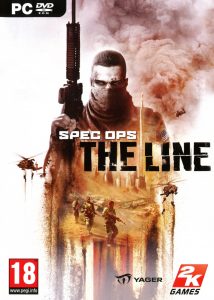 “I’ve been very lucky in my life,” Walt recalled. “The early opportunities that came my way seemed serendipitous at the time, but when I look back at them, I can see them for what they are – blind luck. I moved from Bossier to New York with two suitcases, $2000, and no job prospects. Within three months, I was working at one of the largest video game publishers in the world. If anything, growing up in Bossier gave me enough perspective to realize how lucky I was. I feel like that was key to my survival during that time of my life. Even though I was out of my element, I was driven to learn and succeed because I knew that if I failed, there likely wouldn’t be a second chance.”
“I’ve been very lucky in my life,” Walt recalled. “The early opportunities that came my way seemed serendipitous at the time, but when I look back at them, I can see them for what they are – blind luck. I moved from Bossier to New York with two suitcases, $2000, and no job prospects. Within three months, I was working at one of the largest video game publishers in the world. If anything, growing up in Bossier gave me enough perspective to realize how lucky I was. I feel like that was key to my survival during that time of my life. Even though I was out of my element, I was driven to learn and succeed because I knew that if I failed, there likely wouldn’t be a second chance.”
Significant Zero, is hailed as a “human account of what it takes to survive in today’s video-game industry” according to acclaimed author Jane McGonigal, and it is exactly that. If anything, the book is more about coming of age, fitting in, and self-discovery within a vast industrial complex as it is about video games. It’s a dizzying and rewarding read that kept me turning the pages whenever I could find the time to sneak in a chapter – which was entirely by design and the result of a bit of self-flagellation on Walt’s part.
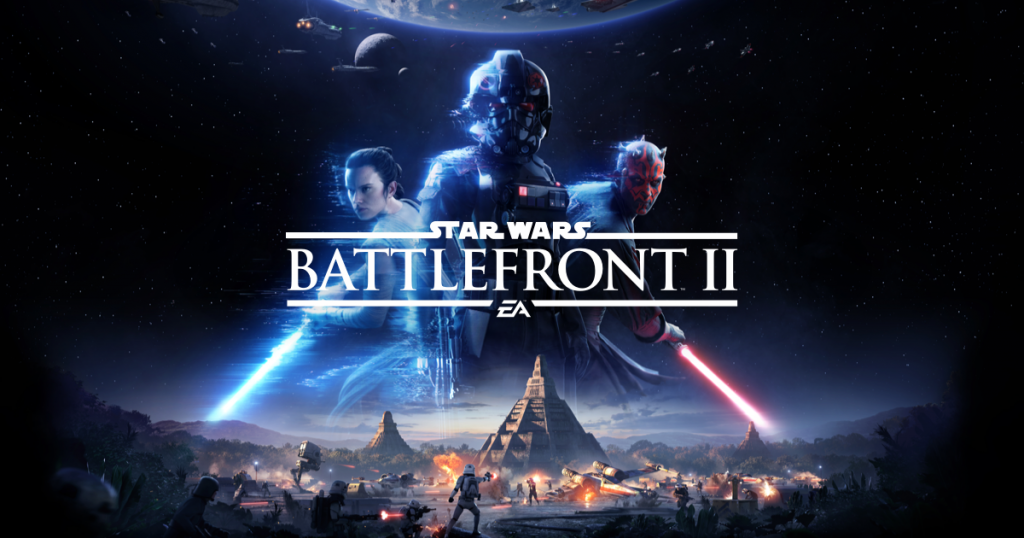
“I love fiction.” Walt said, “It’s 95% of what I read and write. A lot of non-fiction is too dry for my taste, so tend to lose interest very quickly. I wanted Significant Zero to be the type of non-fiction book that I’d be unable to put down. As I was writing it, if I ever felt so bored that I wanted to shove a pencil in my eye, I’d delete whatever I’d just written and start again, this time focusing on making it tighter, faster, and more entertaining. If I wasn’t interested, then I knew the reader would feel the same.”
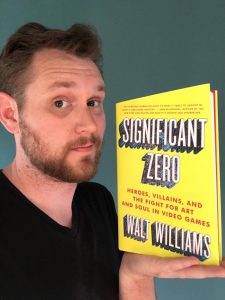
While reading the book, I developed a love-hate relationship with a central character known only as “The Fox” – an industrious and difficult-to-like game studio executive who first hired Walt. The Fox can hardly be described as the antagonist though. He’s more user and mentor at once. He does a lot of smarmy things throughout the book, but there’s an honesty in the portrayal of him which allowed the us to see The Fox as a complex character viewed from Walt’s limited perspective. That perspective is wonderfully messy in itself, full of lessons learned both the easy and hard way. Williams never lets you fall farther than himself, though, whipping up wit and dropping well-timed truth bombs that made the reader feel as thought they are discovering these nuggets of quasi-wisdom along with him. The freneticism of the events Walt shares in his book runs counter to the experience of reading it, which feels more intentional as it comes to a close. Even knowing the events result in Walt coming home to Bossier City with his wife/powerhouse talent sourcer Katie to raise their daughter and be close to family, it’s certainly the journey that makes Significant Zero worth the read.
“I honestly thought I was gone for good.” Walt said, “I spent a lot of my youth wanting to get out of the South for one reason or another. It wasn’t until I was living in Berlin that I realized everyone is trying to escape somewhere, even places like Berlin, New York, or San Francisco. Everywhere is Bossier City, so I might as well stick to the Bossier City I know, instead of living half a world away from my family.”
Alongside writing, editing, and promoting Significant Zero, Walt has also been working on something new while settling back into Northwest Louisiana – a game project. This project comes as no surprise to anyone who finishes the book. The industry demands of international travel, long hours, heartbreak, success, and everything else experienced in Zero brought him to a place where the path forward in games, and in his personal life, is clearer if not perfectly understood.
“The philosophy is simple – I don’t want to spend 3-5 years making one game that requires a massive team and millions of dollars to complete. I have many stories I want to tell, and I want to do that as quickly as possible while rarely leaving my house. For too long, I let my life fall to the wayside while I worked in offices or hotels across the world. I want to spend time with the people I love, while also releasing one or two games a year. The key to doing that is to make our games short and cheap, with an emphasis on unique narratives and a punk, DIY aesthetic. There’s an audience waiting for games like ours – people like me who don’t have 100+ hours to give to every new game released for PlayStation and Xbox. A great story is a great story, no matter how it’s presented.”
As for when we will get to see these new ideas, there were no hints in his answers to my questions, but you can ask him yourself tonight at Barnes & Noble on Youree during his book singing event at 7 p.m..

